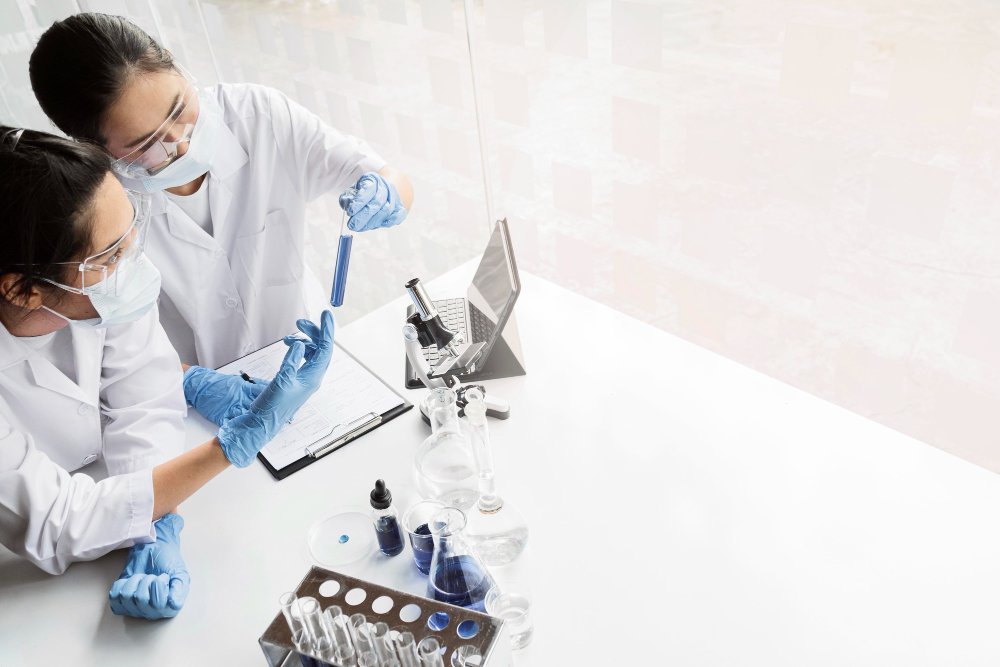As fertility awareness increases globally, more men are seeking thorough and accurate assessments of their reproductive health. South Korea—renowned for its advanced medical technology, affordable care, and international-friendly clinics—has become a top destination for male fertility testing. For international patients, Korean fertility clinics offer a wide range of specialized tests, all provided in a timely and discreet manner, often with English-speaking support.
This guide outlines the most common types of male fertility tests offered in Korea, what they evaluate, and how they help men and couples better understand their fertility potential.
🧬 1. Semen Analysis (Basic and Advanced)
✅ What It Measures:
- Sperm concentration (sperm count per milliliter of semen)
- Motility (movement and swimming ability)
- Morphology (shape and structure)
- Volume, viscosity, pH, and liquefaction time
🧪 Technology Used:
- Many Korean clinics use Computer-Aided Semen Analysis (CASA) for greater precision.
- Some offer enhanced testing under high magnification (e.g., MSOME).
🌍 Why It Matters:
This is the first-line test for male fertility evaluation. It can detect low sperm count (oligospermia), poor motility (asthenozoospermia), or abnormal morphology (teratozoospermia), which are common causes of male infertility.
🧪 2. Hormonal Profile Testing
✅ What It Measures:
- Testosterone (total and free)
- FSH (Follicle-Stimulating Hormone)
- LH (Luteinizing Hormone)
- Prolactin
- Estradiol
- SHBG (Sex Hormone-Binding Globulin)
🌍 Why It Matters:
These hormones regulate sperm production and sexual function. Hormonal imbalances may point to underlying issues such as:
- Hypogonadism (low testosterone)
- Pituitary dysfunction
- Stress-induced fertility suppression
This test is especially useful for men with low sperm count, sexual dysfunction, or delayed puberty.
🧬 3. Sperm DNA Fragmentation Test
✅ What It Measures:
- The degree of DNA damage in sperm cells
🔬 Common Testing Methods:
- SCSA (Sperm Chromatin Structure Assay)
- TUNEL assay
- Comet assay
🌍 Why It Matters:
Even if sperm count and motility are normal, fragmented DNA can lead to infertility, miscarriage, or poor embryo development during IVF/ICSI. This test is commonly recommended for:
- Men over 35
- Previous failed IVF cycles
- High oxidative stress (from smoking, poor diet, or varicocele)
🔍 4. Scrotal and Testicular Ultrasound
✅ What It Detects:
- Varicoceles (enlarged veins)
- Testicular atrophy
- Cysts or tumors
- Blockages in the vas deferens or epididymis
🌍 Why It Matters:
Ultrasound is used to identify structural or vascular issues that may not show up in a semen analysis. A varicocele, for example, can impair sperm production and quality, but it’s treatable through microsurgery.
🧫 5. Post-Ejaculatory Urinalysis
✅ What It Evaluates:
- Retrograde ejaculation (when semen enters the bladder instead of exiting the penis)
🌍 Why It Matters:
If semen volume is low or absent, but the patient has normal orgasm, doctors may look for sperm in a urine sample after ejaculation to diagnose retrograde ejaculation, which can be caused by medications or diabetes.
🧪 6. Genetic Testing
✅ What It Includes:
- Y chromosome microdeletion testing
- Karyotyping (chromosome analysis)
- CFTR gene mutation testing (related to congenital absence of vas deferens)
🌍 Why It Matters:
Genetic factors account for a significant portion of non-obstructive azoospermia (no sperm in semen) or severely low sperm count. Testing can:
- Explain unexplained infertility
- Help guide treatment options (e.g., Micro-TESE vs donor sperm)
- Prevent the inheritance of disorders
🧫 7. STI Screening
✅ Common Tests:
- Chlamydia
- Gonorrhea
- Mycoplasma/Ureaplasma
- HIV, Hepatitis B & C, Syphilis
🌍 Why It Matters:
Sexually transmitted infections can affect sperm production or damage reproductive organs. Korean fertility clinics routinely offer STI testing as part of comprehensive male fertility packages.
❄️ 8. Sperm Cryopreservation (Freezing)
✅ What It Offers:
- Preservation of sperm for future use (fertility treatments, before cancer therapy, or travel)
🌍 Why It Matters:
Many international patients choose to freeze sperm while in Korea, especially if planning IVF/ICSI at a later date or dealing with declining fertility due to age or illness.
🧑⚕️ 9. Physical Examination by Urologist or Andrologist
What’s Included:
- Evaluation of testicles, vas deferens, and epididymis
- Assessment of hormonal signs (e.g., body hair, muscle mass)
- Prostate examination (for older patients or those with low ejaculate volume)
This hands-on exam helps rule out physical abnormalities and may be paired with imaging or lab work.
🏥 Clinics in Korea Offering These Tests for International Patients
Many top clinics provide these services under one roof:
✔️ G Clinic (Seoul – Male Health Focus)
- Known for andrology expertise, hormone testing, and DNA fragmentation
- Offers discreet consultations and English-speaking coordinators
✔️ CHA Fertility Center (Gangnam)
- Offers advanced genetic testing, cryopreservation, and ART integration
- International medical team available
✔️ Maria Fertility Hospital
- Multiple branches (Seoul, Busan), known for quick test results and affordable packages
✔️ Severance Hospital (Yonsei University)
- Hospital-grade diagnostics and expert urology team
- Great for complex cases or those seeking second opinions
🌍 Final Thoughts
South Korea’s male fertility clinics offer a comprehensive, accurate, and patient-centered approach to reproductive diagnostics. Whether you’re just starting your fertility journey, seeking answers after failed treatments, or planning ahead, Korea’s advanced testing options provide clarity, confidence, and convenience—often in as little as 2–3 days.
For international patients, clinics ensure:
- Fast appointment scheduling
- Multilingual support
- Clear result interpretation
- Follow-up via telemedicine
Combining science and service, Korea remains one of the best global destinations for male fertility testing and care.




